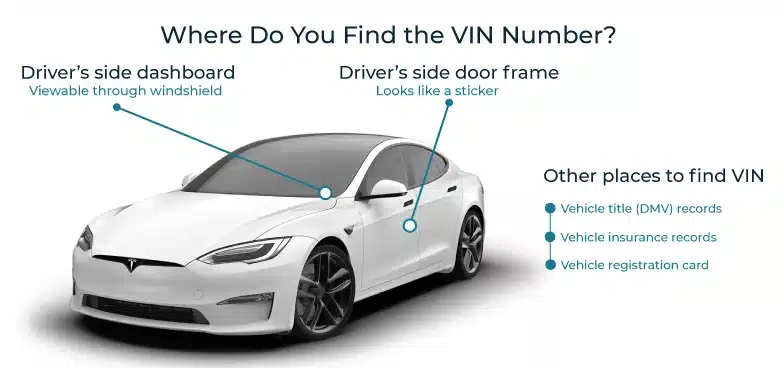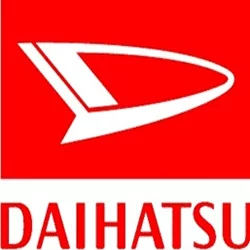
Daihatsu Recall Check
Running a Daihatsu recall check is essential before purchasing or driving your vehicle. It reveals hidden safety risks, gives access to free repairs, and ensures your car stays safe on the road. Stay protected and avoid costly surprises with a quick recall check.
What is a Daihatsu Recall?
A Daihatsu Recall is when the manufacturer identifies a safety defect or non-compliance issue in its vehicles and provides free repairs to owners. Problems may include faulty brakes, suspension corrosion, or malfunctioning door locks. Recalls are issued to prevent accidents, protect drivers, and ensure all Daihatsu cars meet safety standards.
Why You Should Check the Daihatsu Recall History With Detailed Vehicle History
Thinking of purchasing a Daihatsu? Run a recall check first. By checking the VIN, you’ll know if free repairs are needed and avoid costly surprises.
Dodge Unsafe Daihatsu
Daihatsu recalls are issued when a vehicle fails to meet federal safety standards or contains a defect that could pose a risk. Daihatsu recall issues can range from small defects to dangerous safety hazards that put drivers and passengers at risk. Acting quickly on recalls protects your vehicle, prevents accidents, and saves you from expensive repairs later.
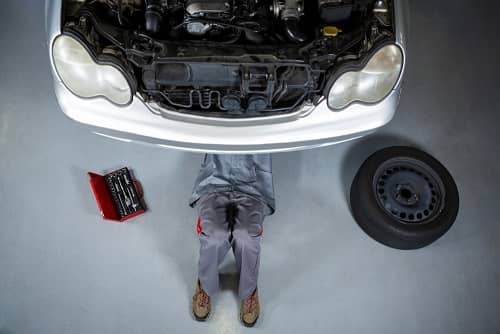

Compliance
Compliance with safety standards starts by checking your Daihatsu recall history. Recalls address risks, and fixing them keeps your car safe, reliable, and road-ready.
Check Common Safety-Related Issues
Checking your Daihatsu recall history is essential for uncovering safety issues like falsified safety tests. These risks may not be visible at first, but can cause serious hazards if ignored. A quick recall check keeps your Daihatsu safe, compliant, and ready for the road.

How to Run Daihatsu Recalls?
Get the Daihatsu recalls report in under a minute by following these simple steps below.

Locate Your Daihatsu VIN
You'll need your Vehicle Identification Number (VIN) handy. On the dashboard, near the bottom of the windshield on the driver's side which is the most common location. Our lookup service works on both classic and current Daihatsu.


Enter your details
Enter your Daihatsu VIN in the form above and click the button to start your recall check. No VIN? Simply use your license plate number instead.


Receive Your Daihatsu Recall Report
Wait for a few seconds for the Daihatsu recalls report to be generated. Once it's finished, you can get the report on the recalls.
What is on the Daihatsu Recall Check?
Find out if your Daihatsu has a recall history. The Vehicle History Report provides complete recall details, along with specific data on each issue affecting your model.
- Date of recalls: Displays when Daihatsu announced the recall, allowing you to assess urgency and schedule repairs quickly.
- Affected Component: Specifies the exact part or system under recall, guiding technicians and owners alike.
- Consequences: Understand the dangers of leaving Daihatsu recall defects unresolved, including accidents and system failures.
- Action of the affected Daihatsu: Confirm if your Daihatsu is included and arrange repairs promptly. A Vehicle History Report covers active and past recalls.
A Daihatsu vehicle history report includes official recall details along with vehicle summary, ownership history, accident records, and more. Review the records below:
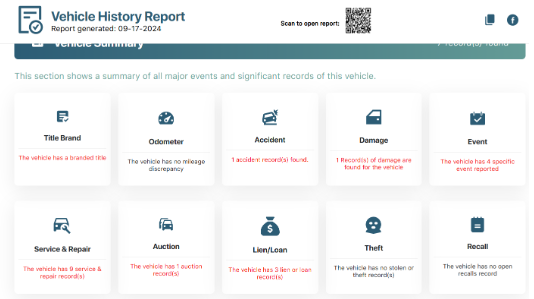
Vehicle Summary
Get a quick overview of your vehicle’s history, covering title status, accidents, damage, recalls, and more. All in one place for smarter buying decisions.
Ownership History
Review past owners, purchase dates, and duration of ownership to understand how the vehicle was used, ensuring better insight into long-term reliability and condition.
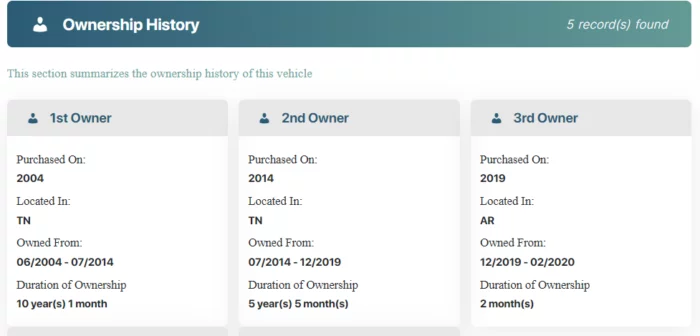

Accident Records
Accident history reveals past collisions or damage, giving you insight into the vehicle’s condition and helping you evaluate safety and reliability before purchase.
Damage Verification
The Damage Verification section tracks records from auctions, structural alterations, or major accidents, helping you avoid risky vehicles and secure a reliable Daihatsu for the future.
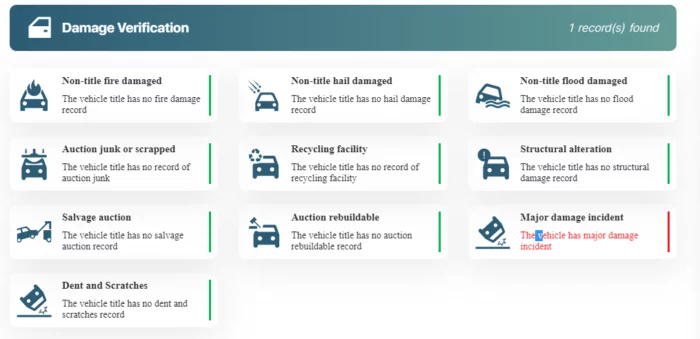
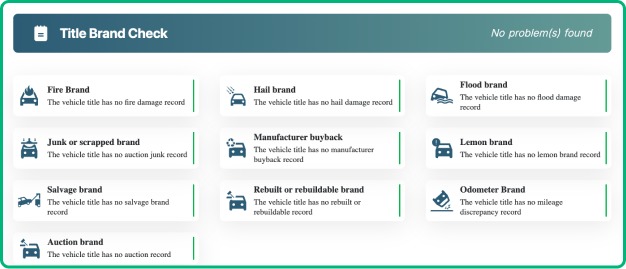
Title Brand Check
Verify your car’s title to confirm there are no branded records such as junk, salvage, or lemon, protecting you from risky purchases and unexpected repair costs.
Mileage Records
Mileage history provides clarity on actual vehicle usage, helping avoid odometer tampering risks. Ensure your Daihatsu is both safe and reliable with our vehicle history report by VIN.
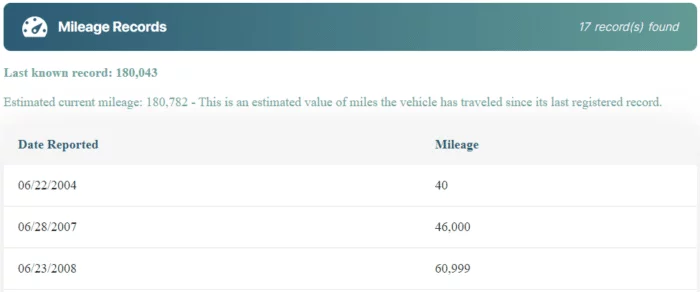
Common Issues Leading to Daihatsu Recall
Daihatsu vehicles have faced several recalls due to safety and reliability concerns. Common issues like falsified safety tests. Below are some of the causes behind Daihatsu recall notices.
- Falsified Safety Tests
In 2023, Toyota subsidiary Daihatsu admitted to falsifying safety crash test data dating back to 1989, affecting dozens of models. The scandal forced a halt in shipments and suspension of production at its four Japanese factories until at least January 2024
- Underlying Systemic Problems
The 2023 recall scandal revealed how Daihatsu’s culture of excessive production pressure led employees to falsify crash test results to meet short-term deadlines. A report confirmed misconduct spanning over 30 years, with 174 new irregularities uncovered in December 2023, forcing a halt in shipments and shutdown of all four Japanese plants
- Door Opening in Crashes
Investigations in late 2023 revealed that some Daihatsu vehicles had doors that became difficult to open externally after collisions, hindering rescue efforts. This issue, tied to falsified crash test data across 64 models, reinforced the need for widespread recalls
Other Notable Mechanical Issues
Front Suspension Problems
While Daihatsu’s 2023 safety scandal exposed decades of crash test fraud, its front suspension recalls were separate, technical issues. The most recent cases in 2024 involved corroding springs and loose shock absorber nuts, affecting models like the Move Canbus, Hijet, and Xenia. Both highlight systemic safety oversight failures
Fuel Hose Issues
Daihatsu has issued multiple recalls related to fuel hose issues over the years, most notably for the 1990–1992 Rocky SUV and a 2017 recall in Qatar for the Terios and Gran Max models. In late 2023, Daihatsu was forced to suspend shipments and shut down its factories after an internal investigation uncovered decades of widespread, systemic safety test rigging.
Rear Brake Light Defects
In 2010, Daihatsu issued a safety recall for 1990–1992 Rocky models due to a cracked check valve in the fuel evaporative emission system. If left unchecked, gasoline vapor could leak into the cabin, posing a fire risk. While unrelated to crash test scandals, these mechanical defects raised serious concerns for vehicle integrity.
Understanding the Daihatsu Recall Process
After a December 2023 investigation exposed forged crash test data, Daihatsu halted shipments worldwide. Under Toyota’s oversight, the recall process now involves re-testing affected models globally and implementing reforms ordered by Japan’s Ministry of Land, Infrastructure, Transport and Tourism (MLIT). For a recall in the U.S., the process involves complaints, investigation by NHTSA, and subsequent recalls managed by the manufacturer and overseen by NHTSA. You can learn more about how their recall process works below.
Report the Issue
Recalls usually begin when safety defects are detected. In Daihatsu’s case, irregularities were exposed by an independent investigation, later confirmed by MLIT inspections.
Investigation
Authorities and the manufacturer work together to verify the defects:
- Screening: Independent committees and regulators confirmed falsified safety test data, such as crash speeds and airbag results.
- Technical Verification: Daihatsu and Toyota retested affected models with third-party oversight.
- Government Action: MLIT revoked vehicle type approvals for some models and ordered immediate recalls.
Recalls
Once recalls are confirmed, Daihatsu or its partner brands, such as Toyota, Mazda, and Subaru, notify owners by mail and publish details online. These notices explain the defect, outline potential risks, and provide interim safety instructions.
Owners are directed to contact authorized dealers to arrange free repairs, with defective parts replaced at no cost. When replacement parts are not immediately available, provisional measures are offered to ensure safety until permanent solutions are ready.
How Daihatsu Vehicle Recalls Are Handled?
When a safety issue arises, regulators, manufacturers, and vehicle owners each play vital roles in detecting, reporting, and resolving recalls. Below is the full explanation.
Manufacturer’s Role
For Daihatsu, recalls mean more than repairs. The company must halt production, cooperate with regulators, verify compliance, file recalls, cover all repair costs, communicate with customers, and ensure similar problems never happen again.
Japan’s MLIT Role
The Ministry of Land, Infrastructure, Transport and Tourism (MLIT) ensures Japanese vehicles meet strict safety standards. Its responsibilities include investigating reports of defects, conducting on-site inspections, revoking type approvals if necessary, and ordering manufacturers to submit official recall notices.
MLIT also requires prevention plans, demands quarterly progress reports, and has the authority to recommend, audit, or compel corrective actions. Manufacturers like Daihatsu are obligated to notify MLIT of any non-compliance and provide recall remedies free of charge.
NHTSA’s Role
In the U.S., NHTSA enforces recall laws to uphold vehicle safety standards. Manufacturers must report known defects and submit official recall filings. NHTSA monitors investigations, orders recalls if necessary, and ensures manufacturers provide free remedies to consumers. The agency also requires that owners, dealers, and distributors receive timely recall notices. Beyond enforcement, NHTSA educates the public through recall announcements. This process ensures unsafe vehicles are identified, repaired, and removed from the road quickly.
Your Role as the Vehicle Owner
As a vehicle owner, your responsibility is to stay informed and act quickly if your car is recalled. To check if your Daihatsu has an active recall, simply enter the VIN or license plate into our recall lookup tool. The system will instantly show if your vehicle needs free repairs or safety updates.
If your Daihatsu is affected by a recall, you should:
- Contact your local Daihatsu or Toyota dealer.
- Schedule the free repair or part replacement.
- Keep documentation of the recall fix for your records.
Ignoring a recall could risk accidents, breakdowns, or lowered resale value. By taking action quickly, you protect yourself, your passengers, and your investment.
Get Daihatsu Window Sticker by VIN
Recent scandals have raised questions about Daihatsu’s safety testing, with MLIT revoking type approvals and ordering recalls. If you’re considering a Daihatsu (new or pre-owned), you need transparency.
With Daihatsu under investigation for manipulated crash test data, a Daihatsu Window Sticker by VIN helps you confirm the vehicle’s original safety equipment and specs, and spot recall-related issues tied to Daihatsu’s MLIT investigation.
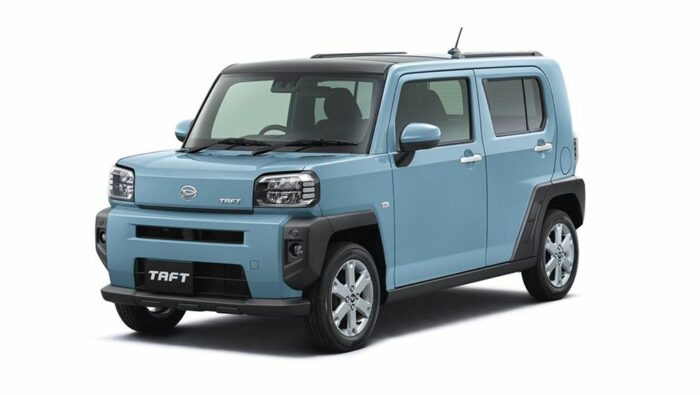
Why Use Detailed Vehicle History to Check Daihatsu Recall?
Detailed Vehicle History delivers more than recall updates. Each Daihatsu VIN report covers specifications, mileage logs, accident and theft records, auction listings with +10 photos (if any), title verification, lien status, and ownership history.
Our goal is to give Daihatsu drivers and buyers peace of mind. By checking recalls and full history, you avoid unsafe vehicles, overpaying, or hidden problems. Start your Daihatsu VIN lookup today for complete transparency.
Recall Check For Others Manufacturers
FAQ about Daihatsu Recall Check
Is Daihatsu made by Toyota?
Yes. Daihatsu has been a wholly-owned subsidiary of Toyota Motor Corporation since 2016. Toyota acquired full ownership to strengthen its small-car strategy, with Daihatsu focusing on compact, fuel-efficient models in Japan and emerging markets.
What happened with Daihatsu?
Daihatsu was found in 2023 to have falsified safety test data for more than 30 years, impacting 64 models and several engines, including airbags, headrests, and side impacts. The revelations led to suspended shipments and halted production in Japan, with global impacts across Toyota, Mazda, and Subaru models. The company has since launched “Fresh Start” reforms, established new training facilities, and appointed new directors to prevent recurrence.
Which Daihatsu vehicles are on the recall list?
Internationally, Daihatsu recalls span multiple models. Including the Cast, Pixis Joy, Gran Max, Town Ace, and Bongo, due to safety compliance issues. Availability of recall details may vary across regions. Check your VIN and confirm if your vehicle is affected by the recall, using our VIN Check lookup tools.
Is the Yaris or Corolla affected by recalls?
Yaris and Corolla are Toyota models. Some Toyota Yaris models (specifically 2019–2020 Yaris Hatchbacks and Sedans) were recalled in August 2021 due to potential fuel pump failures that could cause engine stalls. The Corolla has also had recalls, but you’ll need to check your specific year and trim. For example, the 2024 Corolla had a recall for inaccurate load capacity labels.
Is Daihatsu sold in the USA?
No, Daihatsu no longer sells vehicles in the United States. The company exited the U.S. market in 1992 due to weak sales, strict safety and emissions standards, and limited demand for its kei cars. Since then, Daihatsu has focused on small, fuel-efficient vehicles in Japan and emerging markets, with Toyota owning the brand as a subsidiary.

